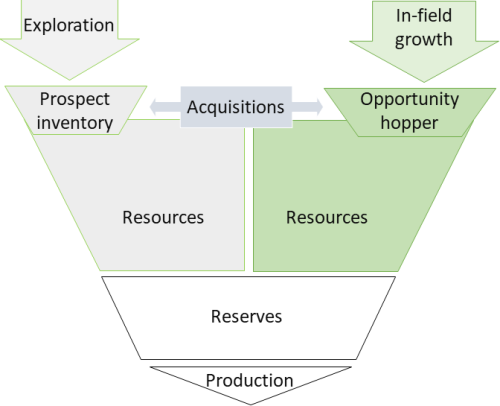Course Details
Home / Public Courses / Course Details
Integrated Reservoir Management (PBM50)
Description
Moving value-creating opportunities from the concept stage to financially approved projects is a key process in managing existing oil and gas reservoirs. To make sound decisions in this area we need to define the technology, cost and organizational requirements and shape a coherent strategy that delivers value.
This course outlines a workflow-based approach to creating value in existing oil and gas reservoirs based on considering the overall recovery factor, breaking it down into discrete efficiency factors and then for each of these analysing why the current development is not delivering 100%.
This is a tried and tested approach, although not widely adopted, and offers a fundamentally different viewpoint on how to describe and prioritise potential value-adding activities (‘opportunities’) that may be progressed into financially approved projects. The workflows described in this course lead to deep insights on what recovery levels should be targeted and what will be required to achieve optimum economic recovery.
COMPUTER REQUIREMENTS: MS Office (Excel, Word and Powerpoint)
Participants are welcome to bring their own laptops to class.
Course Level: Skill
Duration: 5 days
Instructor: Pete Smith
This course outlines a workflow-based approach to creating value in existing oil and gas reservoirs based on considering the overall recovery factor, breaking it down into discrete efficiency factors and then for each of these analysing why the current development is not delivering 100%.
This is a tried and tested approach, although not widely adopted, and offers a fundamentally different viewpoint on how to describe and prioritise potential value-adding activities (‘opportunities’) that may be progressed into financially approved projects. The workflows described in this course lead to deep insights on what recovery levels should be targeted and what will be required to achieve optimum economic recovery.
COMPUTER REQUIREMENTS: MS Office (Excel, Word and Powerpoint)
Participants are welcome to bring their own laptops to class.
Course Level: Skill
Duration: 5 days
Instructor: Pete Smith

Designed for you, if you are...
- A petroleum, reservoir or drilling engineer, or geoscientist working in multidiscipline teams
- Managing across this broad spectrum of disciplines
How we build your confidence
This is a five-day classroom-based course with lectures supported and illustrated by worked examples, case studies and hands-on exercises. The course includes many practical applications and group exercises to develop understanding.The benefits from attending
By the end of the course you will feel confident in your understanding of:- Evaluating key elements of Reservoir Management
- Technology, cost and organisational requirements for resource progression
- How to select the key efficiency factors that constitute the overall recovery factor
- Appraising the potential for EOR activities and understand the cost and technology requirements
- Developing principles for petroleum economic analysis
- Evaluating the organisational impediments to moving projects forward
- Verifying opportunities using performance benchmarking
- How to build a coherent company strategy that is technically feasible, value enhancing and supported by all stakeholders
Topics
- Introduction: High-level description of Integrated Reservoir Management
- What is resource progression and why it is important
- The key elements of Reservoir Management: opportunity screening, identification, description, categorisation, verification, prioritisation; creation of an opportunity progression strategy and identifying and implementing key actions
- Discovery of the barriers to implementation in the realms of technology, costs and organisation
- A technical, commercial and organisational framework to prioritise opportunities
- Breaking recovery factor into efficiency factors
- Generic types of activities and how they impact the efficiency factors
- Understanding the reservoir depletion plan: describing the “Base” plan
- Tools to pre-screen opportunities including EOR screening
- Screening exercise: Introduce a field case study, use a simple screening tool to establish potential EOR opportunities
- Opportunity Identification, description and prioritisation
- Examples of how various companies tackle the issue
- Describe the structure of an opportunity prioritisation review
- Identify and describe opportunities in oil field case study
- How to deal with gas fields
- Simple petroleum economic tools for evaluation
- Verifying opportunities using performance benchmarking
- Building a coherent strategy that leads to action
- Resource Progression Exercise - prioritise opportunities with spreadsheet software to aid discovery of the optimum outcome
- The impact on surveillance and data management
- Summary, group discussion, feedback and synthesis
© All rights reserved
HOT Engineering GmbH Tel: +43 3842 43 0 53-0 Fax +43 3842 43 0 53-1 hot@hoteng.com
